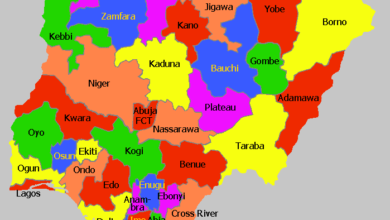Border Closure And Food Security

The closure of Nigeria’s borders since August this year and the attendant economic hardships have left Nigerians wondering on the merit or otherwise of the policy while hoping against hope that it would only be a short term measure.
There are strong and genuine concerns about the ongoing price hikes the policy codenamed Operation Green Border has brought on goods and services especially on staple food like rice thereby causing pains for the average Nigerian family in putting rice on their table, more so when Yuletide is just around the corner.
It is apparently difficult for the man in the street to understand why a policy intended to boost the nation’s economy turns out spiraling prices of foodstuff almost beyond reach.
Critics have continued to argue that the government should have first of all ensured enough and surplus local production of the affected goods before the closure. But the question then is at what time would have been the right time. If not now, when?
Perhaps now is the right time to save the nation’s production from the powerful effects of over smuggling from neighboring countries.
For decades now all previous administrations tried to save Nigeria from becoming a dumping ground. No powerful nation will watch helplessly as it becomes a junk yard for smuggled goods. That is the objective of Operation Green Border and much more.
In terms of rice, Nigeria was perhaps the only market in the world where all sorts of foreign rice had an unfettered access until the coming of the President Muhammadu Buhari administration.
According to index of highest rice consumption nations, Nigeria ranks 11th with China leading, given its population, followed by the United States and Brazil 12th.
But the shameful aspect of it is that of the first 12 highest rice consumption nations, Nigeria is the only one that imports while the rest grow and export theirs. They do not import. Imagine the millions of dollars Nigeria spent daily on rice importation.
Through a strong political will, the Federal Government has revolutionized the cultivation, processing and production of the grains. Nearly every state government in the federation has gone into massive rice production, especially those who keyed into the Central Bank of Nigeria’ s (CBN) Anchor Borrowers Insurance scheme.
Based on the obvious rice production success, the Federal Government banned importation of rice but smugglers continue to have a field day from neighbouring countries hence the border closure.
Rice and poultry producing unions and associations have reportedly hailed the border closure as boosting local production.
Likewise has the governor of CBN, Mr Godwin Emefiele, harped on the success of Operation Green Border.
The Information Minister, Alhaji Lai Mohammed, is also quoted as saying that Nigeria has already saved N3.5billion worth of goods so far seized at the borders.
He also explained that from the national security aspects of the closure, 296 illegal immigrants have been arrested and smuggled deadly weapons seized.
The closure should be viewed as a concerted move to protect the nation from the brazen breaching of border by neighbouring countries especially the Republic of Benin, Niger and Cameroon.
Although Nigeria is a signatory to the African Continental Tariff Agreement, it cannot allow neighbours to indiscriminately flood the nation with unwanted goods.
It amounts to nothing but economic sabotage for Benin to use its port as a vector to route smuggled goods into Nigeria. Why should Benin order millions of rice far beyond its national consumption only to push it into Nigeria through the popular Seme border? The same goes for other West African nations.
While the Economic Community of West Africa States’ ( ECOWAS ) charter calls for free movement among member states, Nigeria as the big brother of the economic bloc must not be taken advantage of by others to encourage smuggling against it.
The present border closure should not be seen that Nigeria is trying to create a hard border for ECOWAS member States. Far from it.
These are economic tough times for Nigeria which therefore call for tough decisions.
Many great nations have had to take closer look at their borders. Such issues often raise serious concern but they have to do mainly with protecting the sovereignty of nations. For example, the US is building a hard border with Mexico, Hungary is doing a similar thing to stem immigrants and invariably protect their economies. History is replete with such cases.
The bottom-line is the rejuvenation of the economy and that exactly is what Nigeria is up to with the border closure.
While we praise Nigerians for patiently bearing the painful effects of the closure, the government should do everything possible to reopen them soonest.
It is strongly hoped that with Operation Green Border, local food production should grow in leaps and bounds to crash the current price upward spiraling.



